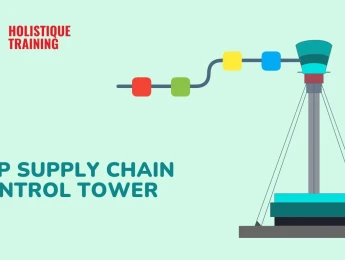Demand planning is the cross-functional process of meeting customer demand while managing inventory levels and avoiding supply chain disruptions. It is essential to ensure high customer satisfaction levels, reduce operating costs, and free up working capital.
This course provides you with the knowledge and skills to successfully combine sales forecasting, inventory management, and supply chain management to meet customer demand efficiently and effectively. In addition to establishing a foundational understanding of demand planning and forecasting processes, you will also learn how to integrate inventory recording into your planning and connect operations and marketing through demand management.
Upon completion of this course, participants will be able to:
- Understand the importance and benefits of demand planning and its role in balancing inventory levels and customer demand.
- Describe forecasting techniques and how demand forecast is the foundation of the demand planning process.
- Examine the value of managing inventory for demand planning.
- Explain how demand management improves forecast accuracy, reduces costs, and strengthens the demand planning process.
This course is intended for:
- Demand Managers and Planners
- Professionals in Procurement, Purchasing, Inventory, and Sales
This course uses a variety of adult learning styles to aid full understanding and comprehension. Participants will review case studies to highlight key areas of importance and possible areas for faults. They will be supplied with the best tools required for learning exercises to improve their skills. Participants will analyse the examples to thoroughly understand how these skills, techniques and methods apply in the workplace.
Day 5 of each course is reserved for a Q&A session, which may occur off-site. For 10-day courses, this also applies to day 10
Section 1: Demand in the Supply Chain
- Understand the structure and characteristics of supply chains.
- Describe the process of customer segmentation.
- Identify customer needs.
- Outline the use of Pareto (ABC) Analysis in classifying products.
- Discuss the importance of inventory locations.
Section 2: Demand Planning
- Identify the different demand planning strategies.
- Describe the benefits of customised product hierarchies.
- Outline the aggregate planning process.
- Summarise MRO inventory planning.
- Examine Master Production Scheduling (MPS).
Section 3: Forecasting Demand
- Outline the general principles of demand planning and forecasting.
- Discuss the impact of lead time on the forecasting process.
- Compare quantitative and qualitative forecasting methods.
- Examine strategies to track and evaluate forecast accuracy.
- Determine safety stock levels.
Section 4: Recording Inventory
- Describe inventory recording strategies: periodic and perpetual.
- Assess inventory accuracy through cycle counting.
- Compare the use of RFIDs and barcodes to manage inventory movement.
- Discuss the key aspects of inventory accounting.
- Identify how inventory management complements demand planning
Section 5: Demand Management
- Identify the differences between demand planning and demand management.
- Outline the characteristics of demand management.
- Define and analyse the stock turnover ratio.
- Examine how demand management impacts customer service.
- Explore the impact of demand management on operations costs.
- Describe how to measure and evaluate the efficacy of your system.
Upon successful completion of this training course, delegates will be awarded a Holistique Training Certificate of Completion. For those who attend and complete the online training course, a Holistique Training e-Certificate will be provided.
Holistique Training Certificates are accredited by the British Assessment Council (BAC) and The CPD Certification Service (CPD), and are certified under ISO 9001, ISO 21001, and ISO 29993 standards.
CPD credits for this course are granted by our Certificates and will be reflected on the Holistique Training Certificate of Completion. In accordance with the standards of The CPD Certification Service, one CPD credit is awarded per hour of course attendance. A maximum of 50 CPD credits can be claimed for any single course we currently offer.
- Course Code PO1-121
- Course Format Classroom, Online,
- Duration 5 days














